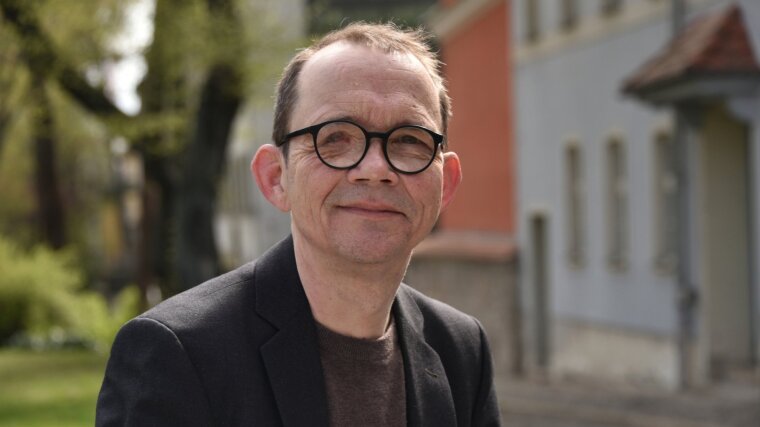
AI is a powerful tool and is becoming even more powerful still. However, Prof. Dr Christoph Demmerling does not believe it will ever exceed the status of a tool. In this interview, he explains why there is no reason to fear »global domination« at the hands of AI and why this scenario is, above all, borne out of deep-seated human fears.
By Stephan Laudien
Some things are difficult to describe. Consider the sensation of biting into a ripe peach, for example, tasting the fibrous flesh within and feeling a bead of juice trickling down from the corner of your mouth. While it can be tricky to put this feeling into words, most people will probably be able to recall the experience, or something similar.
»By contrast, artificial intelligence might be able to determine the substances within the peach but will never be able to understand the enjoyment of eating one,« says a convinced Prof. Dr Christoph Demmerling. His argument is based on the notion that the experience of taste requires a consciousness that artificial systems lack. Demmerling, a philosopher at the University of Jena, does not share the hype revolving around AI at present: »AI is a tool, just as a saw, a car and a pocket calculator are all tools.«
A tool with the potential for misuse
Comparing AI with a hammer or a saw, he perceives—at best—shades of the same colour, with no qualitative differences in their nature. It all depends, he says, on how people use these tools: they can be misused and abused, such as by creating and disseminating deepfakes online. While he recognizes that forgeries are now easier to produce with the help of AI, the philosopher also notes that forgeries have always existed; identifying them in the age of AI simply requires greater attention and alertness.
Instead, Christoph Demmerling believes that artificial intelligence poses rather different dangers. People who always rely on navigation systems, for instance, are quite literally lost when the technology fails. Demmerling also believes that the use of AI applications in administration can be problematic: although they can markedly accelerate and simplify processes, they reach their limits when encountered with a special case that requires a »tailored« approach. This, he says, is where true human judgement comes in. »Although data-based AI tools can assist people, they are not capable of independently performing bureaucratic or even scientific tasks.«
Manifold connections to the world
Over the past year, calls for a moratorium on AI models have made headlines. Its advocates aim to secure a pause in AI development in order to discuss the potential dangers involved.
So, is AI set to take over the world someday? Christoph Demmerling smirks. Such notions, he says, are an expression of deep-seated human fears of a tool turning against its master, not unlike in Goethe’s »Sorcerer’s Apprentice«. Demmerling believes that such a reversal of the roles occupied by humans and machines would require something to be important to the machine, for the machine to be affected by something and be able to establish relevant connections. Machines cannot do any of this, he posits, as they do not possess consciousness. »Such consciousness cannot be created by artificial means because it requires manifold connections to the world, including emotional connections.«
Demmerling contends that AI is equally incapable of making rational decisions because access to vast amounts of data is not sufficient in and of itself. Instead, it is crucial to identify relevant contexts for the given situation. »That is not possible without consciousness and feelings,« he says. It requires an intuitive feel for the things that matter.